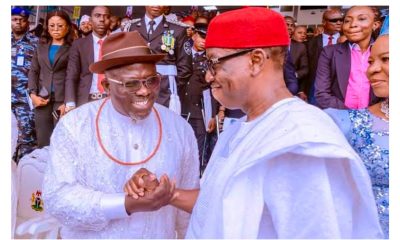The Economic and Financial Crimes Commission (EFCC) is to approach Attorney-General of the Federation Abubakar Malami( SAN) this week with a request to file charges against Mrs Alison-Madueke based on its findings.
As part of its investigation, the EFCC has traced N47.2 billion and $487.5million to the ex-minister, it was gathered.
Besides, about N23,446,300,000 and $5milion (about N1.5billion) have been located in various Nigerian banks.
But only about $37.5million Banana Island property has been finally forfeited by the ex-minister.
Justice Chuka Obiozor of the Federal High Court in Ikoyi, Lagos, ordered the final forfeiture of the property.
According to a fact-sheet , the EFCC has concluded the investigation of the allegations against Mrs Alison-Madueke.
More than 50 suspects in some of the cases linked with her have been arraigned in court, especially the alleged N23.29billion 2015 poll bribe.
The EFCC review team felt it will be “in the interest of justice to extradite the ex-minister to Nigeria for trial”. She is believed to be in Britain.
Some of the investigated allegations against the ex-Minister, with substantial evidence, include the following:
- release of $1.3b NNPC cash to the Office of the national Security Adviser (ONSA) in 2014 to fight kidnapping in Niger Delta;
- whereabouts of $18.5billion earnings by the Nigerian National Petroleum Corporation (NNPC);
- $15.8billion NLNG dividends between 2000 and 2014( especially about $9b component between 2010 and 2015);
- $1.7billion oil contracts involving Mrs Alison-Madueke and two business associates;
- N23.29b 2015 poll bribery scam;
- $37.5m property on Banana Island; and
- acquisition of many properties at home, in Britain, and in the UAE
A source, who spoke in confidence, said: “The EFCC has reached a convenient bend to request for the extradition of Diezani from the UK. Most of the cases against her have reached maturity level for her trial at home.
“The commission will formally approach the Attorney-General of the Federation, Mallam Abubakar Malami( SAN) to assist it to invoke the extradition treaty between Nigeria and the UK against Diezani.
“Through the office of the AGF, appropriate charges will be filed in court to commence the process for the extradition of the ex-Minister.”
Responding to a question, the source added: “The extradition process is without prejudice to the ongoing investigation of Diezani in the UK.
“The US end of Diezani probe has been done. The EFCC has also hauled evidence to the UK to assist the authorities. Some detectives from the UK have visited this country too.
“For the Nigerian flank of the probe, it is necessary to extradite Diezani to answer allegations against her.”
The source, however, added that the AGF has the final say on whether or not to initiate the extradition process. He stressed that all the allegations against the former minister are within the extradition treaty between Nigeria and the UK.
The laws guiding extradition in Nigeria include:
- The Constitution of the Federal Republic of Nigeria, 1999 (as amended) with extradition matter within the purview of the Federal High Court.
- The Extradition Act, Cap E 25, Laws of the Federation, 2010
- The Immigration Act, Cap 11, Laws of the Federation, 2010
- Administration of Criminal Justice Act, 2015.
- The Evidence Act, Cap E14, Laws of the Federation, 2010.
Twice, the embattled former minister has defended some of the allegations against her.
On the N23.29m poll bribery cash, she said: “In the face of the obvious falsification of facts and misinformation, it is only right and proper that the EFCC should publish the details of the $153.3million lodgements, the bank account numbers and the account beneficiaries, showing proof of my link to them.
“Having also alleged that the said $153.3million was ‘wired’ from NNPC, the EFCC should also publish details of the NNPC accounts from where the said $153.3 million was taken, with proof that I authorised such a transaction/transactions, acting either in my private capacity or as The Honourable Minister of Petroleum.
“Let me state for the record that as Minister of Petroleum, the operation and management of NNPC finances were outside my purview as outlined in both the Petroleum Act and the NNPC Act.
“The only involvement I had in NNPC finances was in terms of statutory matters, where the Petroleum Act prescribes that as minister, there were certain duties or actions which I had to perform or take in relation to NNPC.”
The ex-Minister said also that she acted on the instructions of ex-President Goodluck Jonathan in directing the Nigerian National Petroleum Corporation (NNPC) to release $1.3billion to the Office of National Security Adviser (ONSA).
She said it was not within the power or discretion of any minister to question or disregard the written directive of a president.
Although about $1.4billion was requested by the ONSA via three memos, for “Intervention for Urgent National Security Projects,” about $1.3billion was released from NNPC accounts.
But it was unclear what became of the $100million balance.
Documents revealed that ONSA had requested for $1.4billion between March 27, 2014 and May 5, 2014 when approval was given and cash backed.
About three memos were sent to ex-President Jonathan on March 27, 2014, 31st March 2014 and May 5, 2014.
But Diezani insisted that she could not be held liable for carrying out a presidential directive.
The statement said: “The attention of Mrs. Diezani Alison-Madueke, the former Minister of Petroleum, has been drawn to a story in The Nation Newspaper of Monday 22nd January, 2018 as well as other print and online media titled “Diezani in trouble again over withdrawal of $1.3b from NNPC accounts”.
“Under Section 5 of the Constitution, all executive powers are vested in the President who may exercise it directly or through the Vice President or Ministers of the Federation. As Minister for Petroleum Resources Mrs. Alison-Madueke was an appointee and delegate of the President.
“Consequently, the Minister of Petroleum Resources acted on the basis of the written approvals and directives given by the President, which approvals were given after written requests from the relevant security agencies were made to the President.
“At such instances, as in fact the article clearly shows, a Service Chief or Intelligence Chief makes a written request/appeal to Mr. President outlining whatever urgent and critical security needs of the nation they consider imminently paramount, at any given point in time.
“If such a request received the approval of the President, the President may direct that the requested funds be drawn from a Security Budget maintained by NNPC, or that the funds be sourced from elsewhere.
“Where the President directs the Minister of Petroleum Resources, in writing, to make the payment from the NNPC, the Minister in turn, directs the GMD NNPC in writing to execute the directive of the President. NNPC then wires the funds from one of its major foreign bank accounts, or from the CBN, directly to the stipulated account of the particular branch of the armed services, or intelligence unit, or department, that initiated the request.
“It is not within the power or discretion of any serving minister to question or disregard the written directive of a president including that of the incumbent President
“The former Minister of Petroleum Resources in the statement stated that at no time, did she, or could she, as the Minister of Petroleum Resources, interfere with this process.”
The ex-Minister said since the disbursement of $1.3billion can be traceable, it was wrong to assume that it was diverted.
“It is, therefore, impossible and implausible, for any monies under such presidential directives to be diverted during the process, at least from the standpoint of the Minister.
“Any and all amounts approved and directed by Mr. President to be paid, were executed exclusively by NNPC, directly from NNPC’s foreign and or, Central Bank of Nigeria accounts, to the stated recipients.
“Therefore, let it be very clear, that all funds disbursed by these banking institutions on behalf of NNPC are easily and openly traceable, and the process cannot and should not be utilized for the distortion of facts.”

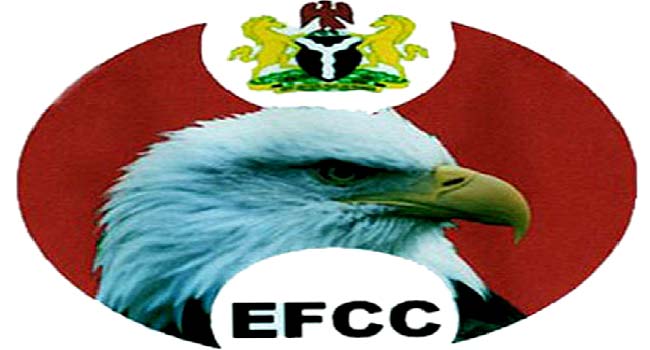

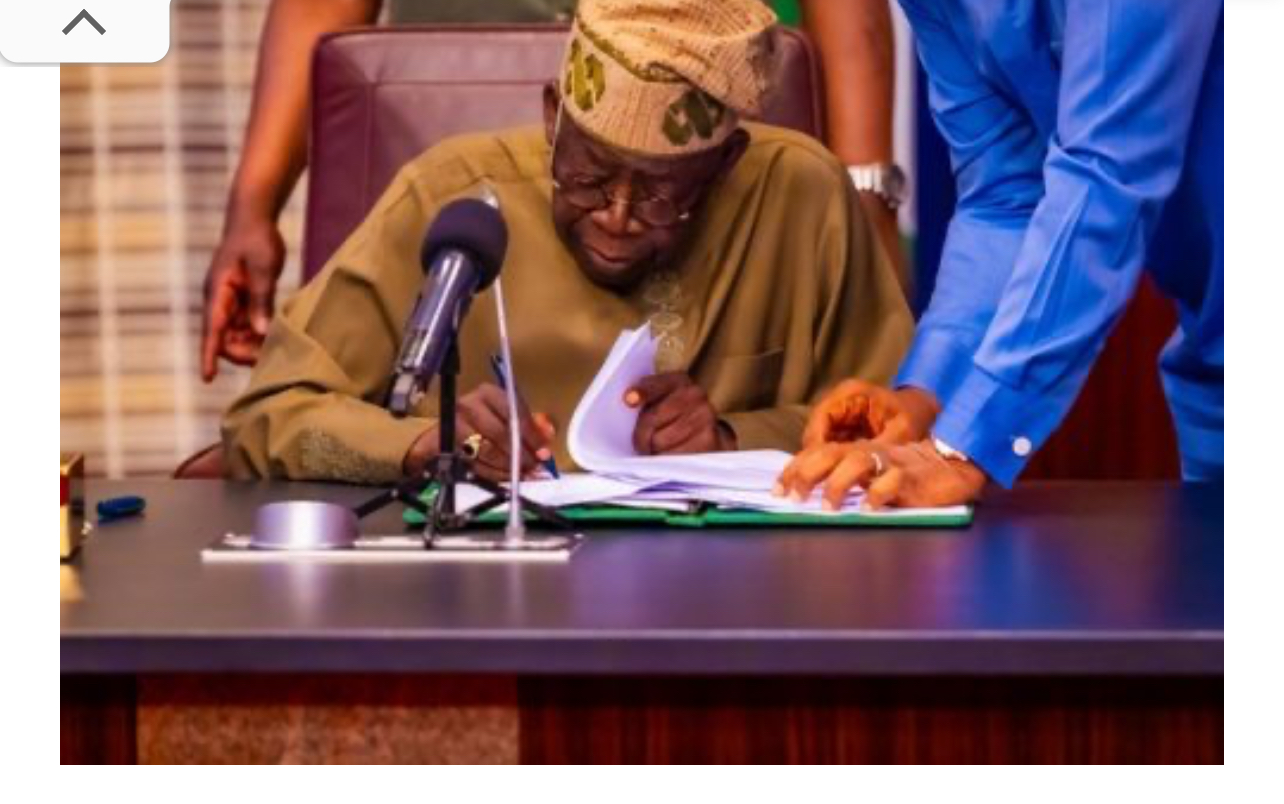
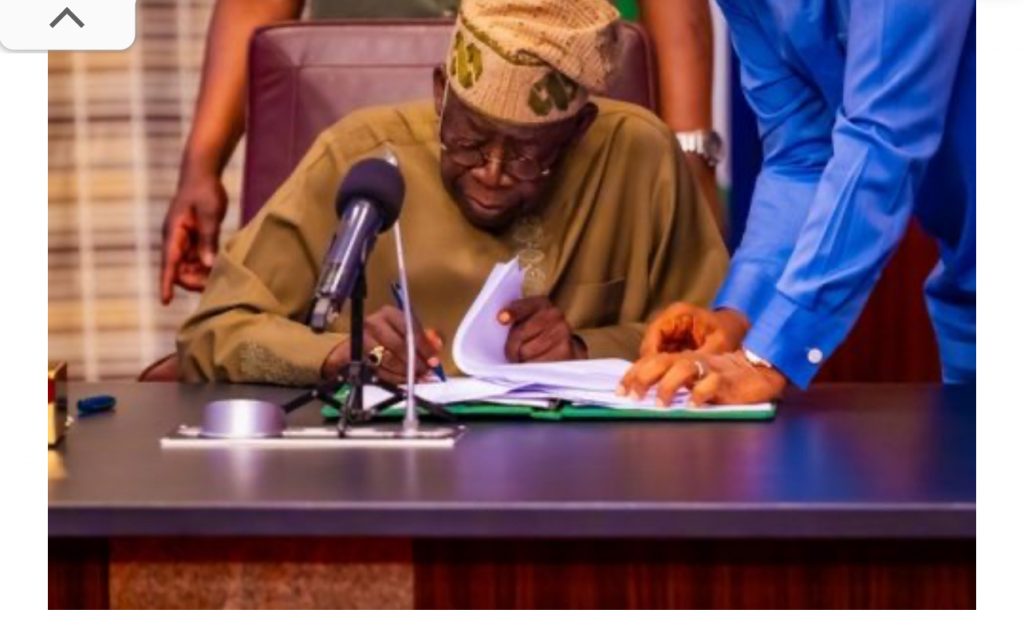 President Bola Ahmed Tinubu has signed the four tax reform bills into law.
President Bola Ahmed Tinubu has signed the four tax reform bills into law.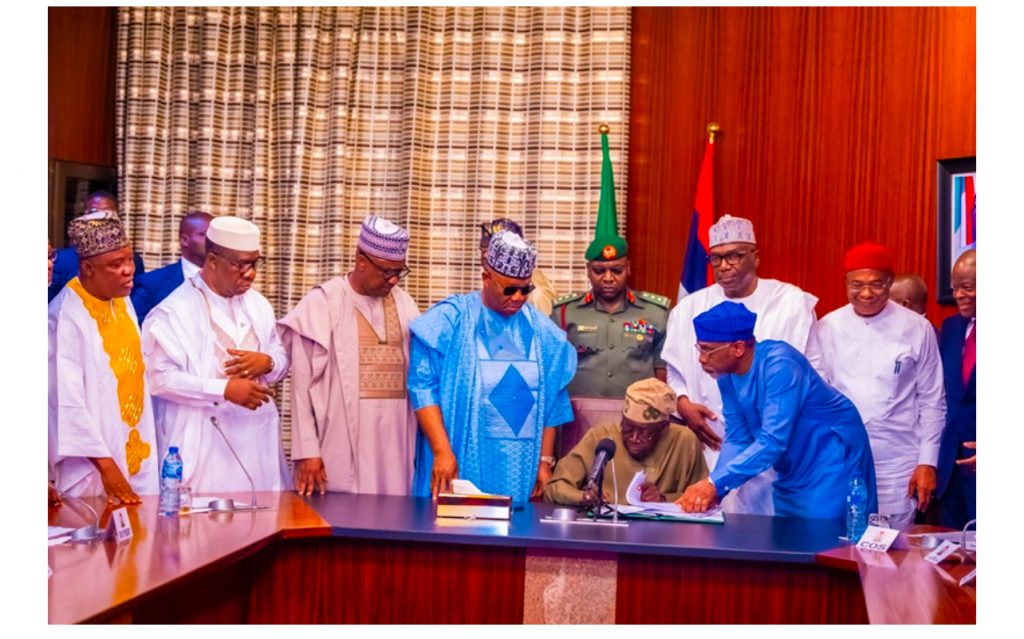
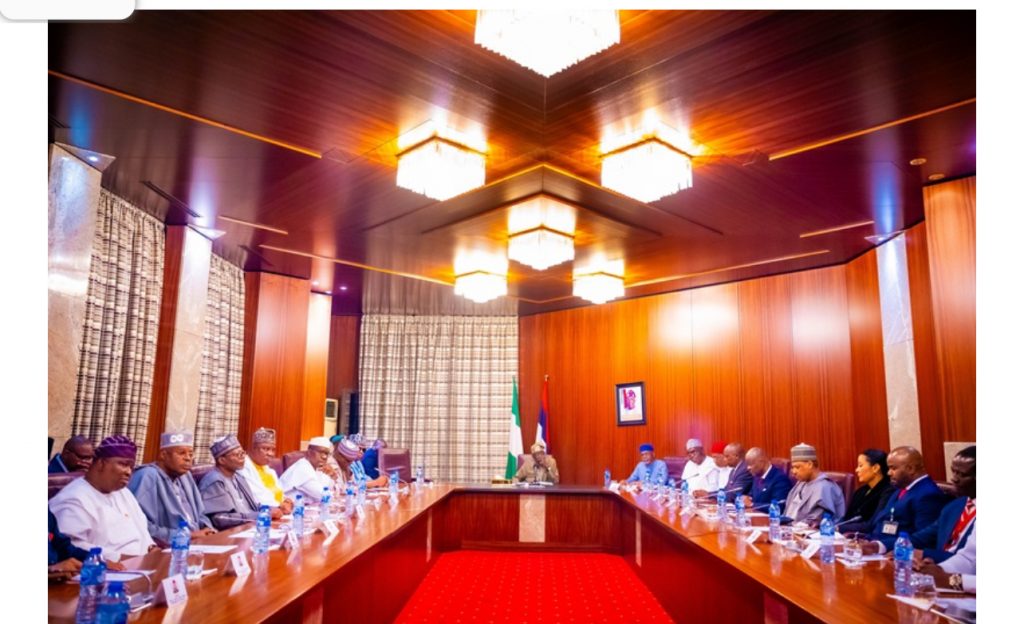 “We are laying a foundation for a tax regime that is fair, transparent and fit for a modern, ambitious Nigeria. A tax regime that rewards enterprise, protects the vulnerable, and mobilises revenue without punishing productivity”, he said.
“We are laying a foundation for a tax regime that is fair, transparent and fit for a modern, ambitious Nigeria. A tax regime that rewards enterprise, protects the vulnerable, and mobilises revenue without punishing productivity”, he said.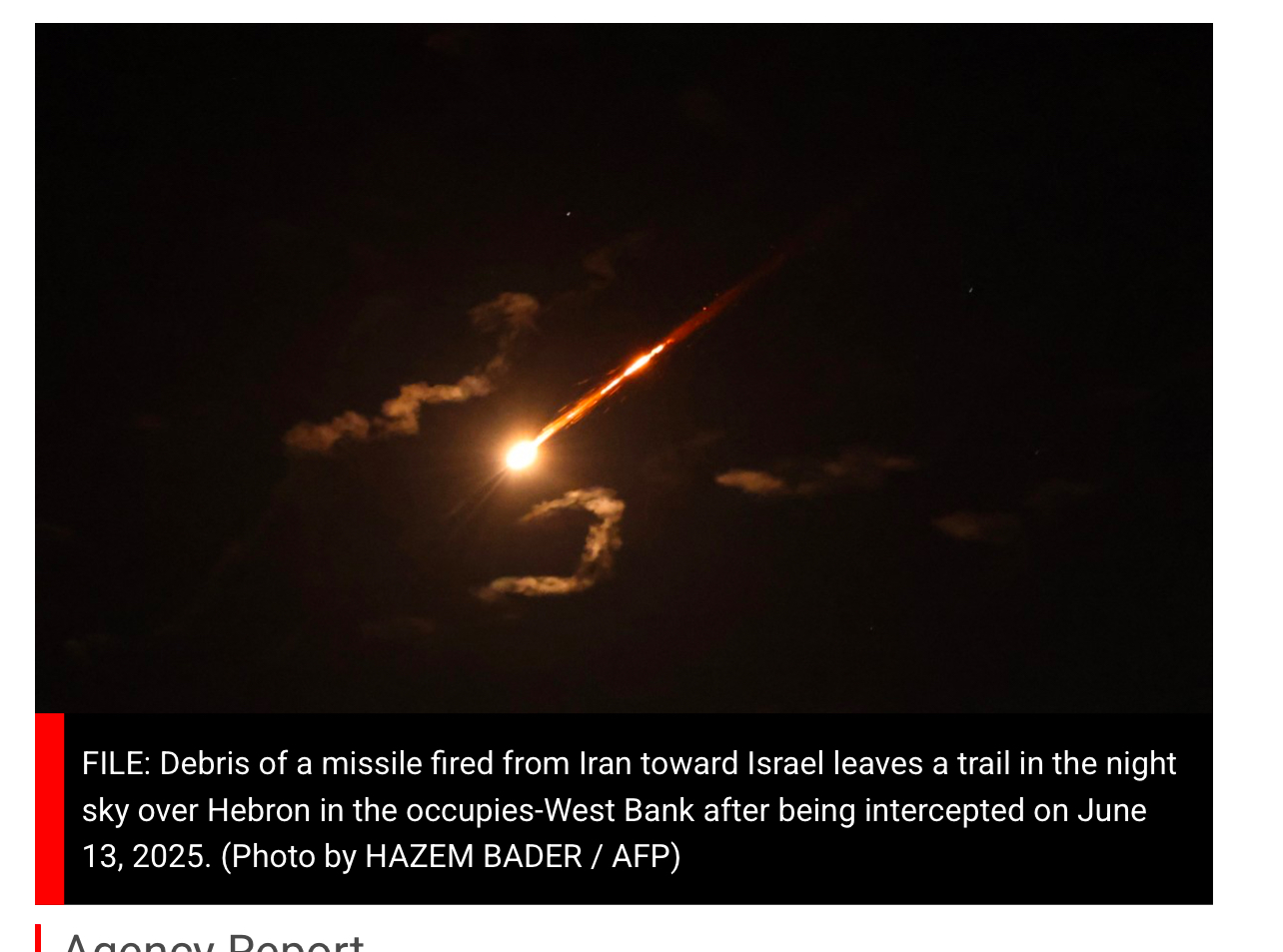
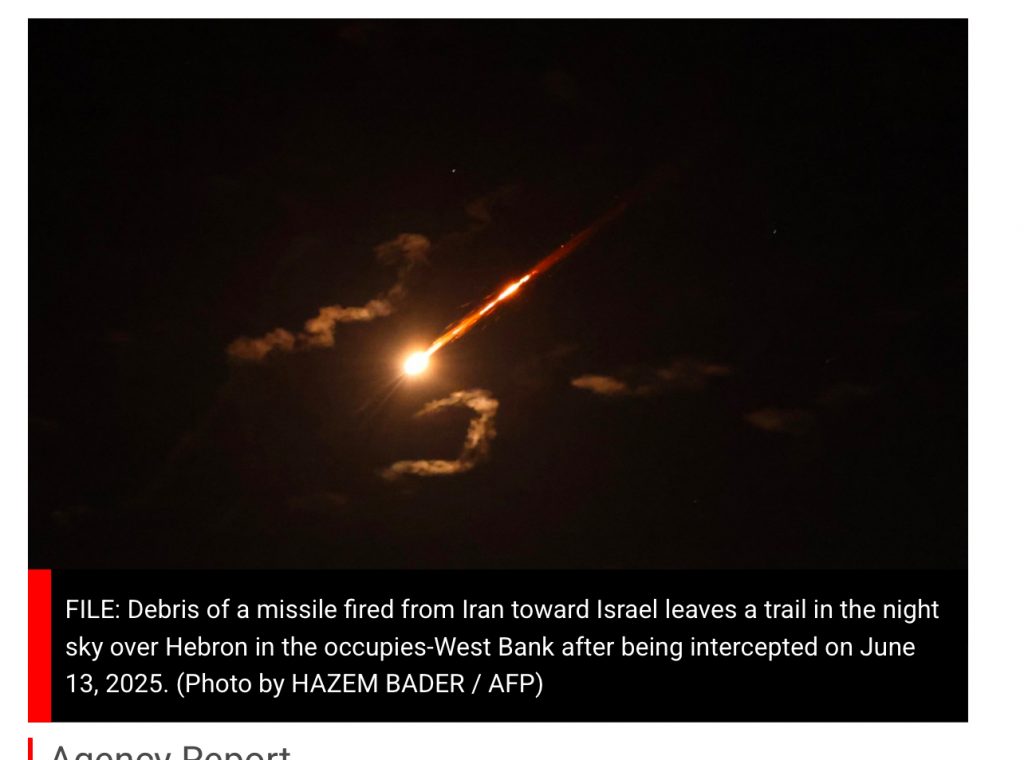 Debris of a missile fired from Iran toward Israel leaves a trail in the night sky over Hebron in the occupies-West Bank after being intercepted on June 13, 2025.
Debris of a missile fired from Iran toward Israel leaves a trail in the night sky over Hebron in the occupies-West Bank after being intercepted on June 13, 2025.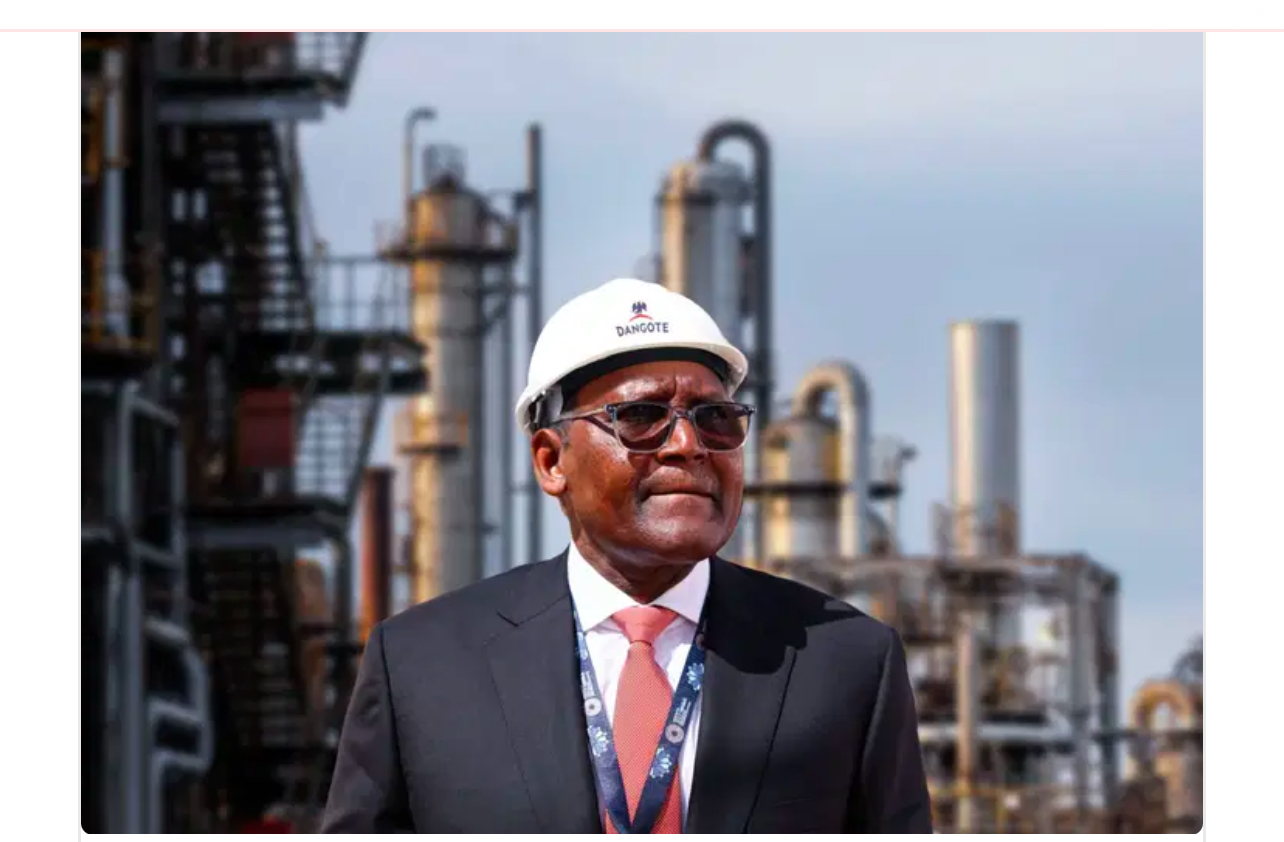
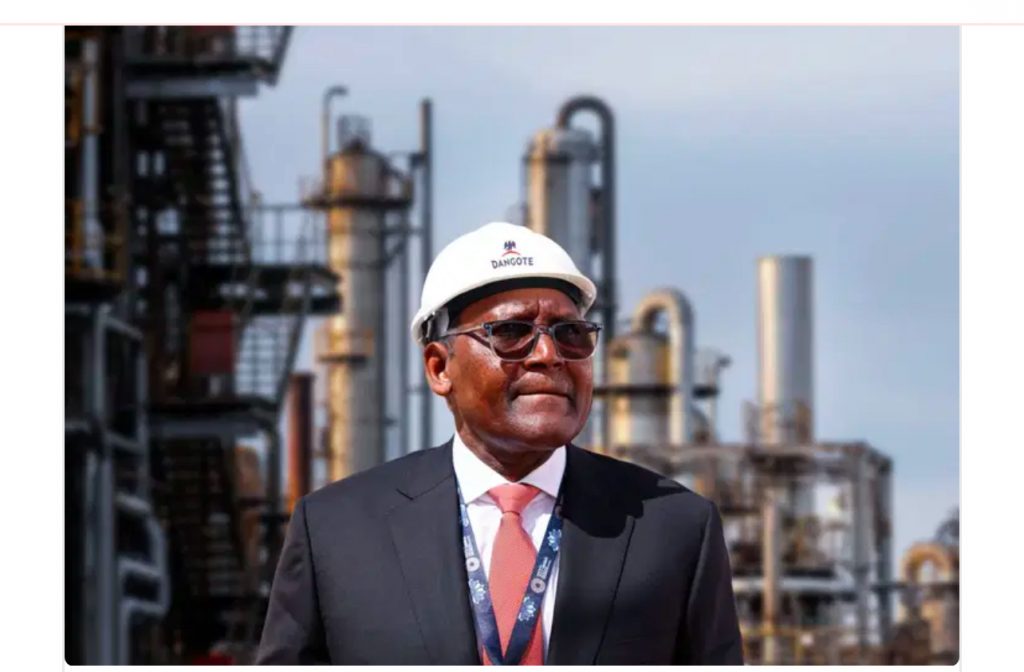 The Dangote Petroleum Refinery has announced that it will begin distribution of Premium Motor Spirit (PMS) and diesel nationwide.
The Dangote Petroleum Refinery has announced that it will begin distribution of Premium Motor Spirit (PMS) and diesel nationwide.





